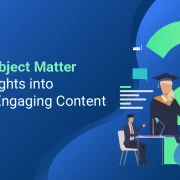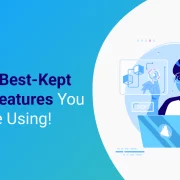An LRS or Learning Record Store helps in collecting stores, retrieving data, and learning activities. An LRS is connected to an xAPI or Tin Cab and can be integrated to an existing LMS.
Q: What is a Learning Record Store (LRS)?
A : A database called a Learning Record Store (LRS) is used to record and monitor learning events and activities, both online and off. LRSs are intended to record and preserve specific information about learners’ experiences, and they are frequently used in conjunction with xAPI (Experience API).
Q: What are the benefits of using an LRS?
A : An LRS can offer businesses insightful information about the performance, progress, and activities of their learners. Organizations may pinpoint areas for development, customize learning opportunities, and assess the success of their training programs by recording and analyzing learner data. By offering thorough records of learning activities, LRSs can also assist firms in meeting regulatory obligations.
Q: How does an LRS differ from an LMS?
A : Whereas an LRS is concentrated on tracking and recording learning events, an LMS (Learning Management System) is used mostly for managing learners and delivering training courses. An LRS can collect data from a variety of sources, both online and offline, but an LMS primarily tracks and records data within its own system. In addition, an LRS is intended to be more versatile and flexible than an LMS, enabling organizations to record and retain information on a variety of learning activities.
Q: How can I use the data captured by an LRS?
A : An LRS can collect data that can be used to personalize learning opportunities, pinpoint training program weaknesses, and assess the success of training initiatives. LRS data can also be used to give stakeholders, like managers, teachers, or compliance officers, in-depth reports and analytics.
Q: Can I integrate an LRS with other systems?
A : It’s true that a lot of LRSs have connectors with other platforms, including learning management systems (LMS), human resource information systems (HRIS), and customer relationship management (CRM) systems. These interfaces can assist businesses in automating procedures, streamlining operations, and giving learners a smooth experience. HurixDigital provides seamless LRS integration solutions, ensuring efficient data management, enhanced learning analytics, and improved user experiences across multiple platforms.




